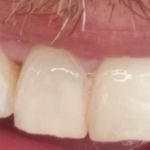How to Prevent Cavities from Forming: Essential Tips for a Healthier Smile
- 1-Importance of Oral Hygiene in Cavity Prevention
- 2-Food and Beverages to Avoid
- 3-Dental Care Routines for Cavity Prevention
- 4-Natural Remedies for Healthy Teeth
- 5-Visit Your Dentist Regularly
1. Importance of Oral Hygiene in Cavity Prevention
One of the most effective ways to prevent cavities from forming is to maintain a consistent oral hygiene routine. Brushing your teeth at least twice a day with fluoride toothpaste removes food particles and bacteria that can contribute to tooth decay. Flossing daily is equally important, as it helps to remove plaque and food debris from between your teeth and along the gumline. Without regular brushing and flossing, plaque can build up, leading to cavities and gum disease.
Real-life examples show that individuals who follow a strict oral care regimen are much less likely to experience tooth decay. For instance, the American Dental Association has documented several case studies where individuals improved their oral health dramatically by simply adhering to basic dental care routines.
2. Food and Beverages to Avoid
What you eat plays a significant role in preventing cavities. Foods high in sugar and carbohydrates fuel harmful bacteria in your mouth, leading to acid production that can erode tooth enamel. Sticky foods, like caramel or gummy candies, are especially troublesome, as they can cling to your teeth for long periods, providing a constant source of fuel for bacteria.
In addition to sugary snacks, acidic drinks like soda, fruit juices, and wine can soften tooth enamel, making it easier for cavities to develop. Instead, consider drinking water, unsweetened tea, or milk, all of which are gentler on your teeth.
For a more detailed approach, imagine someone who has cut out sugary snacks and drinks from their diet and switched to healthier alternatives. Over time, they notice fewer visits to the dentist for fillings or cavities, leading to a better overall dental health experience.
3. Dental Care Routines for Cavity Prevention
Establishing a comprehensive dental care routine is critical. This should include regular brushing, flossing, and the use of mouthwash to help reduce plaque buildup. For added protection, consider using fluoride toothpaste, as fluoride strengthens tooth enamel and helps to remineralize any areas of your teeth that may be beginning to decay.
For those looking to take extra steps, electric toothbrushes and interdental brushes can enhance your brushing routine, ensuring that even the smallest crevices between your teeth are cleaned thoroughly. Additionally, rinsing with fluoride mouthwash once or twice a day can further protect your teeth from cavities and decay.
4. Natural Remedies for Healthy Teeth
If you're looking for natural ways to prevent cavities, there are several home remedies that can help keep your teeth healthy. For example, oil pulling with coconut oil is an ancient practice that may help reduce plaque and bacteria in the mouth. Certain herbal teas, like green tea, have antibacterial properties that help fight cavity-causing bacteria. Additionally, eating foods rich in calcium and vitamin D can contribute to stronger teeth and bones, further reducing your risk of cavities.
However, it's important to note that while natural remedies can be beneficial, they should complement, not replace, your regular dental care routine. A balanced approach is key to maintaining long-term oral health.
5. Visit Your Dentist Regularly
No matter how diligent you are with your oral hygiene, regular visits to your dentist are essential. Your dentist can detect early signs of cavities or other dental issues that may not be visible to you. In some cases, cavities can form in hard-to-see areas, and your dentist may be able to spot them before they become more severe.
In addition to check-ups, your dentist can provide professional cleanings, which remove tartar that regular brushing and flossing can't. These cleanings help to prevent cavities and keep your teeth in top condition.
By following these steps, you can significantly reduce your risk of cavities and enjoy a healthier, brighter smile. If you're looking for products that can further enhance your oral care routine, consider exploring a range of high-quality toothpaste, mouthwash, and dental tools that are designed to promote cavity prevention and overall dental health. Learn more about how you can protect your teeth with our recommended products today!







 Maui Whitening Orlando4.0 (32 review)
Maui Whitening Orlando4.0 (32 review) Bloomington Southside Dental Care3.0 (26 review)
Bloomington Southside Dental Care3.0 (26 review) Christiana Dental Center4.0 (650 review)
Christiana Dental Center4.0 (650 review) Carolina Dental Arts - New Bern Ave4.0 (152 review)
Carolina Dental Arts - New Bern Ave4.0 (152 review) Equitas Health Short North Medical Center3.0 (96 review)
Equitas Health Short North Medical Center3.0 (96 review) Prosthodontics of Madison - Kendra Schaefer, DMD & Christine Roenitz, DMD4.0 (25 review)
Prosthodontics of Madison - Kendra Schaefer, DMD & Christine Roenitz, DMD4.0 (25 review) The Importance of Oral Health Education During Pregnancy for a Healthy Pregnancy
The Importance of Oral Health Education During Pregnancy for a Healthy Pregnancy Best Tips for Brushing Your Teeth Properly for Healthy Gums: Essential Techniques for Oral Health
Best Tips for Brushing Your Teeth Properly for Healthy Gums: Essential Techniques for Oral Health Why Skipping Dental Checkups Can Lead to Bigger Oral Health Problems
Why Skipping Dental Checkups Can Lead to Bigger Oral Health Problems Advantages of Porcelain Dental Restorations
Advantages of Porcelain Dental Restorations How Can Diabetes Cause Tooth and Gum Problems? Preventing and Managing Oral Health Issues
How Can Diabetes Cause Tooth and Gum Problems? Preventing and Managing Oral Health Issues Healthy Habits for Promoting Good Oral Health and Hygiene: Tips for a Healthy Smile
Healthy Habits for Promoting Good Oral Health and Hygiene: Tips for a Healthy Smile